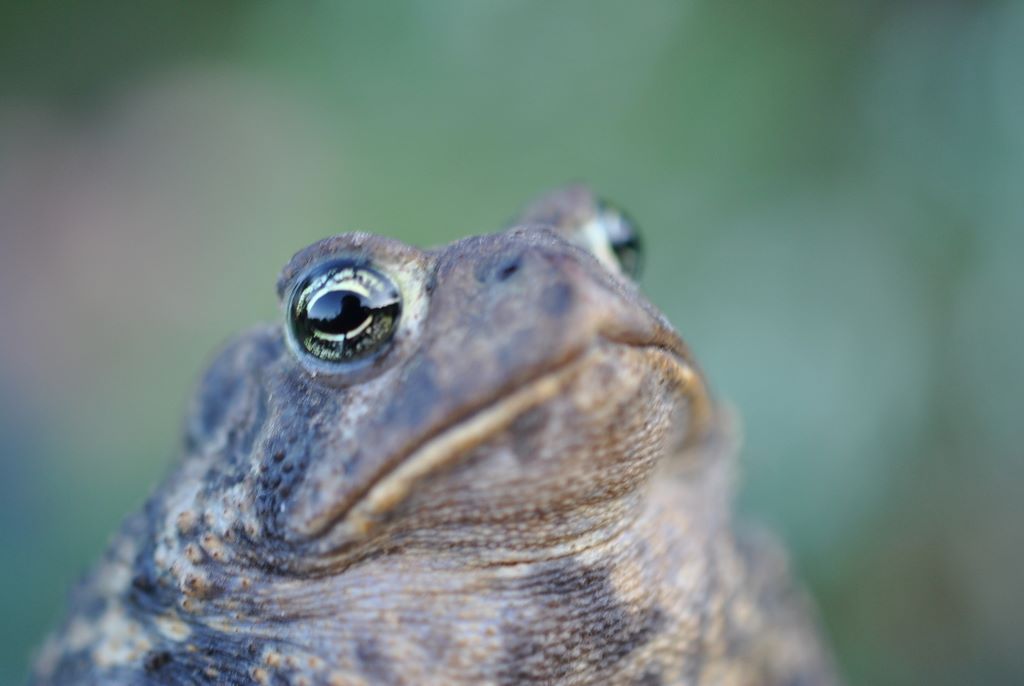The frog sounds of Maine are a common feature of many spring and summer evenings. Together with calls of their wartier cousins, the toads, these creatures create a rich symphony. Curious to learn what you’re hearing? You’re in the right place.
There are a wide array of amphibian sounds in the state, including tree frog calls, true frog sounds, and toad calls. You can hear the croaks, peeps, trills, and various other noises for much of the spring and summer, though peak calling periods vary by species.
Some vocalizations are well known: bullfrog calls and spring peeper sounds are familiar to many beginners, for example. Others, like the Northern Leopard Frog’s snore and Pickerel Frog’s (softer, shorter) snore may be new for many people.

For all these frogs, I have included only the males’ mating (also known as advertisement) calls, as these are by far the most often heard. While other frogs make other noises, including alarm, release, and territorial calls, these are often short, tough to identify to species, and not often recorded.
If you’re interested in learning more, check out my full guide to frog and toad calls in the United States.
Sounds and Calls of Maine’s Tree Frogs
There are two species of tree frogs in Maine: the spring peeper and the eastern gray tree frog. These are both members of the Hylidae family and share several physical characteristics, including small, narrow bodies and enlarged toe pads to help climb trees or bushes. However, Maine tree frog sounds are easily distinguished, as you’ll see below.
Eastern Gray Treefrog
Hyla versicolor
The advertisement call of the gray treefrog is a musical trill that lasts about half a second and is repeated every few seconds. While it is similar to the Cope’s Gray Treefrog call, the pulse rate (speed of the call notes) is significantly slower if both frogs are calling in the same temperature.
Spring Peeper
Maine True Frogs Sounds and Calls
Six amphibians in Maine are considered “true frogs”, meaning they are members of the Ranidae family. These are the typically medium to large-sized “classic” frogs, the ones that most fit the image that pops up in your mind when someone says “frog”.
Closer examination can reveal a range of physical and vocal differences, however. Read on to learn about the differences among Maine’s true frog sounds and calls.
Bullfrog
Green Frog
Pickerel Frog
Mink Frog
Northern Leopard Frog
Wood Frog
Sounds and Calls of Maine’s Toad
There is only source of toad calls in Maine: the American Toad. You can check out its sounds in the video below.
American Toad Calls
References and Further Reading
This sound guide draws from a number of sources, including several of the following:
Some of the best quality information online about individual frogs can be found at AmphibiaWeb and Animal Diversity Web. These provide some details on calls, among a host of other valuable content.
A whole variety of YouTube channels provide great examples of frog sounds and calls, several of which are included here. These creators range from passionate individuals to state agencies. If you liked a video embedded here, check out more from these channels.
Several books provide detailed and well-researched accounts of these frogs, including The Frogs and Toads of North America (2009) by Elliott, Gerhardt, and Davidson and Frogs and Toads of the United States and Canada (2013), by C. Kenneth Dodd.
